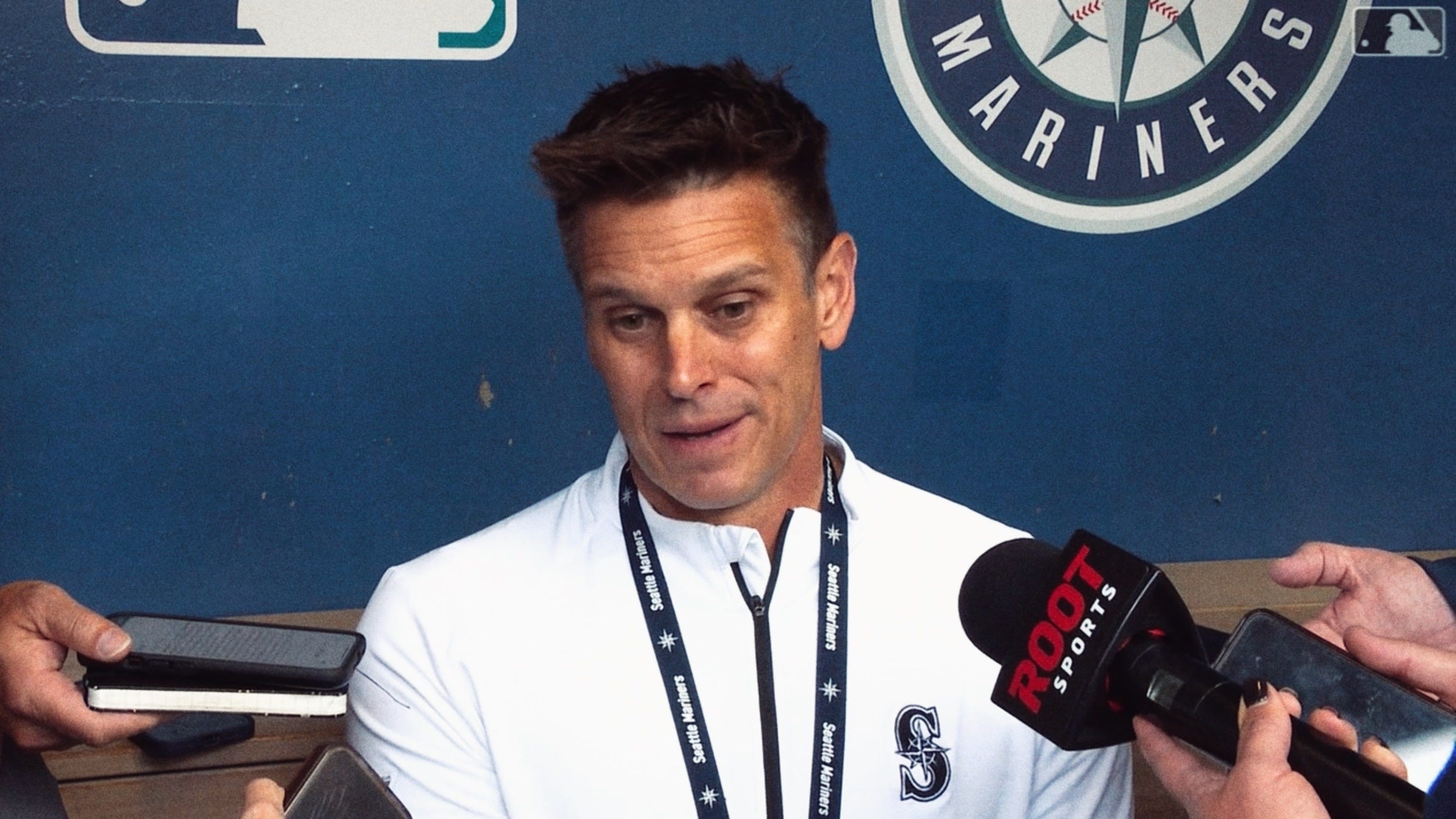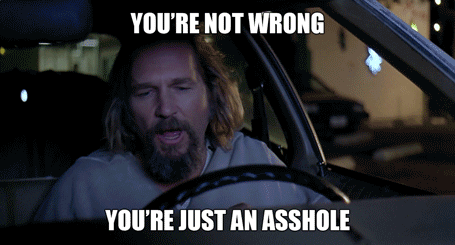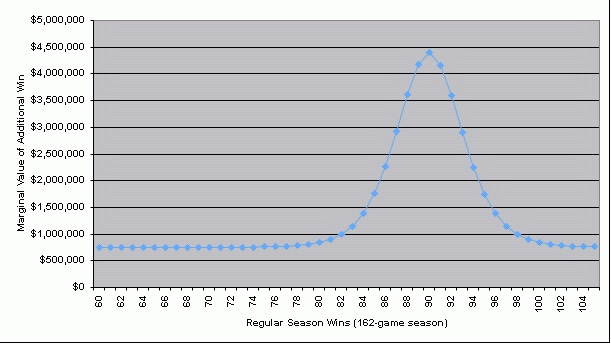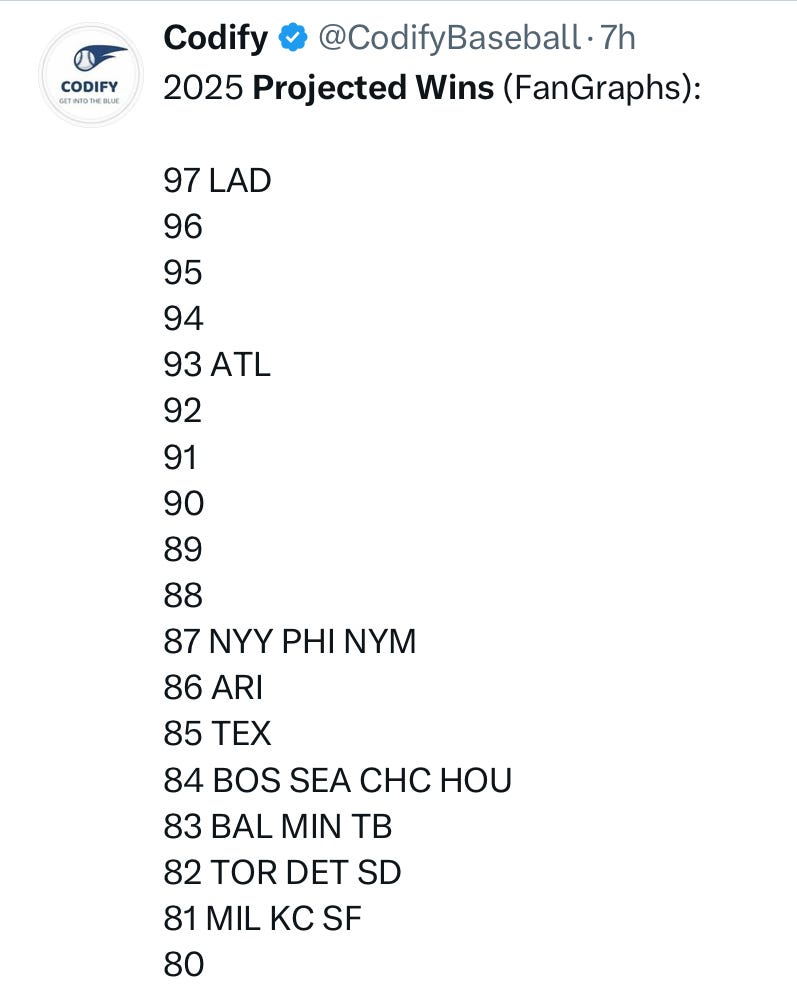That’s a wrap on a cold winter for the Mariners
And people have things to say.
It is so dumb but I love the narrative side of baseball. All this talk on messaging and media hits and so on? I used to eat it up more than I do now but I still enjoy the interplay between a baseball organization, the media and fans. There’s more to it than you think. And at the same time—also less.
When I first started at the Mariners, the marketing crew needed someone to sit in on the weekly PR meetings with the Baseball Information folks and a broader comms pro. Now I was in there as a new hire in a role that wasn’t even full-time before I started so they had me at these meetings to, like, make note of Kyle Seager coming up on 200 home runs or something so we were ready for a graphic and other necessary elements for an on-field presentation.
Meanwhile, I thought I was Josh Lyman in West Wing, asking about and commenting on everything.
It’s just fun. I love crafting and commenting on the story of Mariners Baseball, which is why I do whatever this is.
And I’m not trying to blow smoke about how I know the ins and outs of messaging, but only use this as a way to lead into the point that there is a level of thought and preparation that goes into pressers and media hits and so on.
Still, people are people—all the parties involved—and sometimes context is lost before it all comes out the other end.
Discourse about discourse
First, what is all of this? Why are we hearing from the Mariners all of a sudden?
Well, this is just when we do this. Every single year. Baseball is cyclical like that. Like a lot of things. But even more punctual—though it used to be more punctual.
The weekend before the Super Bowl was, in a different time, when Mariners FanFest would take place. It wasn’t always quite as good as it could be, because it was hard to get players out to a place that’s a long way from where they usually are, but it existed and that was a lot better than not existing.
And before that was the Mariners Pre-Spring Training Luncheon. All the media in town would come down to the ballpark. It was one of like three days a year you might see Aaron Levine. How fun. But there’d be a few players—usually new adds, the guys who’d be at FanFest—and the GM and player dev person and the medical guy and the marketing lineup and so on. Then everyone would enjoy a catered meal.
Before and around that, you’d have the media hits with Brock & Salk and local news and whoever else.
Now we just have the radio hits. And a Zoom call.
Zoom call could’ve gone better, huh?
Honestly, when I first started listening to the thing—again, that recent Jerry Dipoto scrum—I had some second thoughts on all the furor. I have some third(?) thoughts or something now, but in listening I had the benefit of the context.
What most people saw on a timeline or maybe in an article came from a 20-minute Zoom call with a few reporters, scheduled because the Jorge Polanco signing had just gone official. And because things that don’t turn a profit don’t really exist anymore, this was when Dipoto would discuss the offseason as a whole before heading down to Peoria.
Like I said, working my way into it, it all sounded fine. Thennnn we have the quote. That quote.
For whatever it’s worth, here’s the full question and start of Jerry’s answer:
Hey Jerry, given that you haven't added a ton of offensive pieces to the roster this offseason, where do you see, from the group that you have the improvement level coming? Is it Haniger and Garver bouncing back and, if so, what does that look like? Is it, you know, where do you see that stretch coming from since you guys were, you know, top of the league in strikeouts and low, you know, second lowest in average last year? How does that manifest itself?
I mean, “How much time do you have is?” is the easy answer to that question.
I I think there is the reality of our offense and then the perception of our offense.
We play in a tough ballpark to hit in. Our offense has generally been above average based on advanced metrics wRC+, things like that, for a number of years now. You know, the last three years we've actually had a very stable offense, particularly good on the road. I think one of the top 10 in MLB when we're on the road—and, at home, we play in a tough run-scoring environment that that really benefits our pitching staff and and our players, position players, have been asked to to find ways and and we've generally done that.
You know, we've turned it into one of the best home records in the league so, you know, we we try not to to think too much about how to reconstruct the team for our ballpark. It's working the way it is. We just have to figure out how to make it work better.
And, you know, our team in general, we strike out more at home than on the road. I think that's also true of our opponents and, you know, what we have done is we've we've built a team of players that on their own, you know, they're they're very good and the[this is where he kicks into filibuster mode and lists like half the lineup]
I’m going to preface the following reference by stating I do not think Jerry Dipoto is an asshole. If anything, I like Jerry. Definitely more than the average M’s fan.
So don’t take this too literally. But when I first saw the tweets and even when I listened with the full context and actual audio, I winced and thought
Perhaps this isn’t part of your own common parlance, but it’s in my personal diction. It’s like one of those “German word for” bits.
They have put up very solid wRC+ rankings the last three years—12th, 6th and 8th going back—but the biggest issue here is, quite unfortunately, that does not matter. It doesn’t do anything. It isn’t real.
Runs are real. And runs require, most times, a sequence of events. Home runs are good. But you need more.
Here, FanGraphs has this thing called BaseRuns, which aims to take run differential and go another level down in stats inception and try to neutralize the effects of sequencing. Here’s it explained:
For example, if your team has an inning that goes 1B-1B-HR-K-K-FO, you end with three runs. If your inning is HR-1B-1B-K-K-FO, you wind up scoring one run. You might only care about the run scoring outcome, but again, the events themselves are a better reflection of what happened rather than the order in which they happened.
In these BaseRuns standings, the Mariners lost the third-most wins to sequencing with six. Going off everyone’s BaseRuns total, the Mariners should’ve won the AL West with 90 wins. (You could say that but probably shouldn’t say that.)
They had enough of the “events” to win 90 games but not in the right order.
I’ve gone both ways on this stat. I’ve argued it’s predictive and there is probably some value there but also, after a full season of living in that daily grinder, “Well, ackshually, we played pretty good by the underlying metrics” doesn’t hit anywhere in the neighborhood of right.
And I’m not saying anything these guys don’t know. I get where Jerry’s coming from. You’re not going to go out there and not say you have confidence in your guys. You’re probably going to feel—and maybe act?—a little defensive. You’re probably not going to say “Hey I blew it,” not to say he did.
Jerry’s not gonna blow up ownership, either. I was listening to that recent Divish hit with Puck and it was interesting he’d heard Scott Servais caught some guff from higher-ups for the “do the best with the cards we’ve been dealt” line.
So, you know. That sucks.
Here’s how GM Justin Hollander navigated similar terrain on Bump & Stacy on Seattle Sports.
…we were just an unacceptably bad offense for the first four months of the season. And that's, if it starts with somebody's fault, it's probably mine.
In our front office, we just did not play good enough and put enough pressure on teams. Even when we were 10 games up, we were doing it in ways that was more smoke and mirrors than was going to lead to longterm success.
Over the last two months of the season, even preceding when Dan and Edgar took over, we played much better offense, particularly after the trade deadline.
We need to score more runs this year. That's a fact. We need to be more consistent day to day.
In my conversations and Jerry's conversations with Dan and Edgar, the night-to-night consistency is something that they're really focused on. Sometimes that will come as a result of the little things like moving runners, putting a ball in play, stealing a base. Sometimes that'll be hitting more three-run homers.
But we definitely need to put more pressure on teams offensively. We feel like we have a team that is capable of doing it. I don't know if we're going to lead the free world in offense like we did over the last six weeks of the season. I'm pretty certain we'll be better than we were for the first four months of the season.
We were just bad.
So, yeah, Justin was probably better here. Obviously, it helps to not be first off the tee. It also helps when you have better feel for the environment you’re in. Like, when you’re in a radio booth you know what you say is going out far and wide fast. Not that a call with beat reporters isn’t something to be buttoned-up for, but it plays a role.
Anyway, I think anytime people are actually talking about messaging and organizational comms, it probably isn’t a good thing. It isn’t necessarily bad but if the team on the field isn’t front and center, something’s amiss.
That said, and to get toward wrapping this up, were I in their shoes, I think the best message you can deliver to fans, theoretically coming from them, is something like this:
We understand your frustration. We’re at the ballpark every single night for the tough games. We want this to work and we recognize that sometimes it does not, not to the level we want it to offensively. Especially not at home.
The ballpark being a tough environment plays both ways. We, literally, have a home field advantage. We feel good about where we are on the run prevention side. We need to make it work for us with the lineup. We win a lot at home. We want to win even more.
We’ve shown in the past we will add. In 2022, we added the best pitcher available in-season. In 2024, we added the best hitter available. We are always aggressive in trying to find ways to make us better.
And the players we added last year, guys like Randy and Victor, we think will be big for us over a whole season.
Still, we get you. But we are right in the thick of what will be a very competitive American League. That’s what we’re playing for. We know. We have a good base.
And that base includes one of the best farm systems in the game—it’s a system that could help us in a multitude of ways. It starts down in Peoria as we take a look at some of these guys and how they fit into the Major League game, the Major League clubhouse. It’s an exciting time.
It’s not ideal. It’s not what you want to hear, because ideally you want to hear from an owner who says they’ll do whatever it takes to win a title and you believe them because their actions are pretty convincing already.
We don’t have that, though. We have this.
And I think the Baseball Ops group has done a tolerable job communicating from a tough spot. A spot that’s partially of their own creation, but still.
This is still a very bad offseason
*clicks word count*
Ah, well then. This isn’t going to be too long of a section here as we just wrap up a riff. Everything I can say and still feel about this offseason is probably covered in the piece from after the Solano signing.
This is as bad as it could’ve realistically gone.
I’ve got a weird anecdote but hang with me.
In a different time, I used to have a low hum of anxiety about Félix Hernández’s eventual decline. Not when it was happening, but the worry—the reality—that someday it would and that would be terrible. This was like 2012. Maybe 2013. I just hated any allusion to it, like a random start with declining velocity. Any hiccup. Didn’t want to see it. For a bit there, Justin Verlander was like a worst-case scenario. Boy did that change.
But yeah, I used to worry about it, it as some hallmark of a wasted opportunity, but then before I knew it, we were already in the middle of it. It went from 2014 to 2019 overnight for him and then he was out of baseball.
More recently, I worried the Mariners would waste their window—a full, real window teams win titles in—by not running a payroll like they used to run. By not trying to be great when they were already pretty good.
They’d try to be Cleveland or Tampa or Minnesota, what a meh best-case scenario.
And hey, head up, look here, we are right smack in the middle of it. We are living it and have been for a couple years now. This is happening. It is absolutely happening.
It may still work out. Maybe they do win a division and even a pennant but they’ll never be able to say they did everything they could do to make it more probable.
I mentioned this in the last post, liking a Michael Rosen FanGraphs piece on the Polanco signing, and I especially enjoyed an old-school win curve reference.
It’s jut another way to look at what I’m already saying above and have so many times before.
Here is, from that piece and originally from Nate Silver and Vince Genaro in the early 2000s, the curve for the marginal value of additional wins. Obviously, the numbers on the Y axis are different now but the curve is the same.
What’s it mean? Well, it’s simple.
What’s the value in going out and adding another…let’s call it three wins worth of value when you’re a 70-win team? Well, it’s nothing. Oh yay, 73 wins. That gets you under 90 losses. Whee.
But what if you add another three wins as a, purely theoretically, like an 84-win team?
Yeah, that’s pretty big. That’s very big.
It could be everything.
This organization knows that. They are aware. We’re all living it.
Whether possible or not, it isn’t a priority. It isn’t reality. And that’s a bummer.
Still,
Go M’s.








Great post. I feel like you've talked me back from the ledge a bit after this off season. The glass may actually be half full. Also, the reference at the end of the post about 2025 projected wins and adding just three more wins was encouraging.